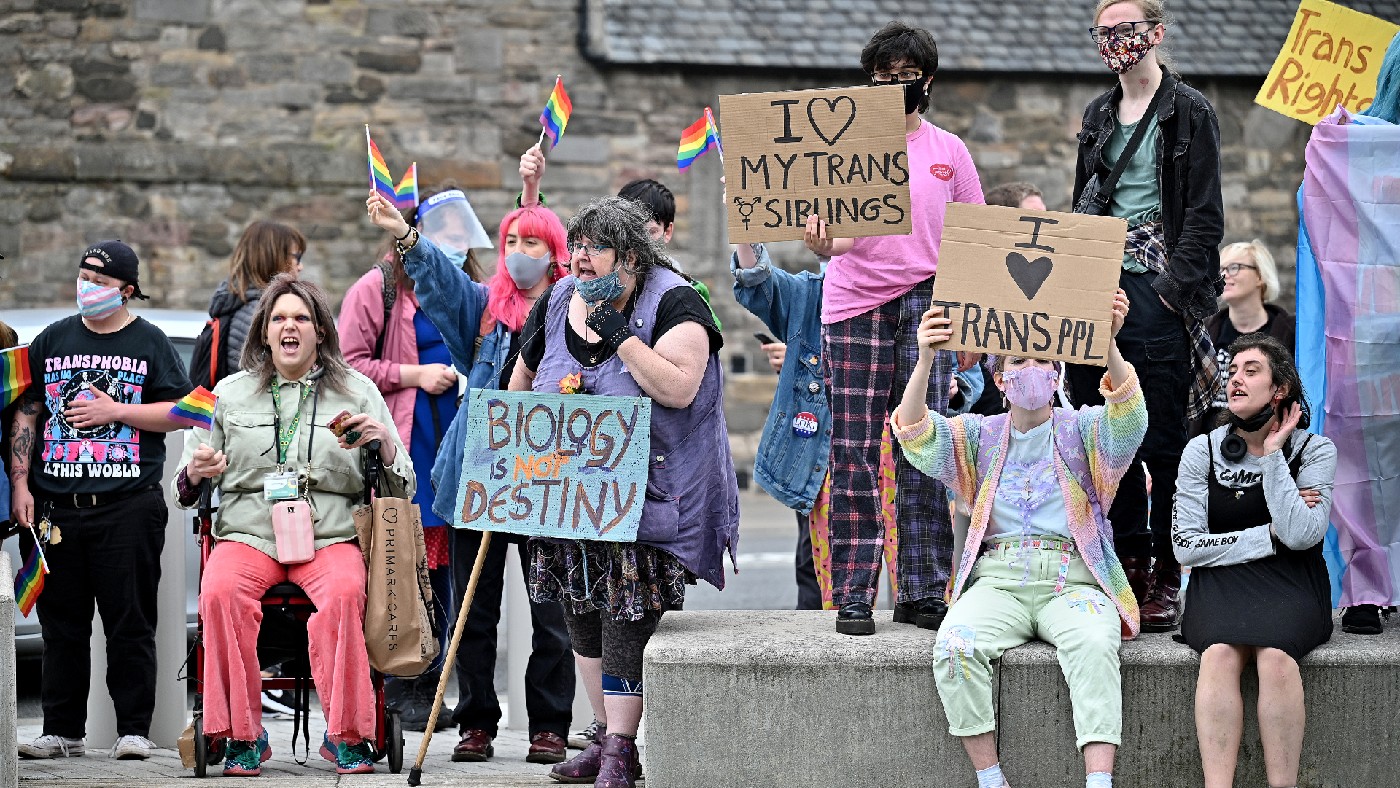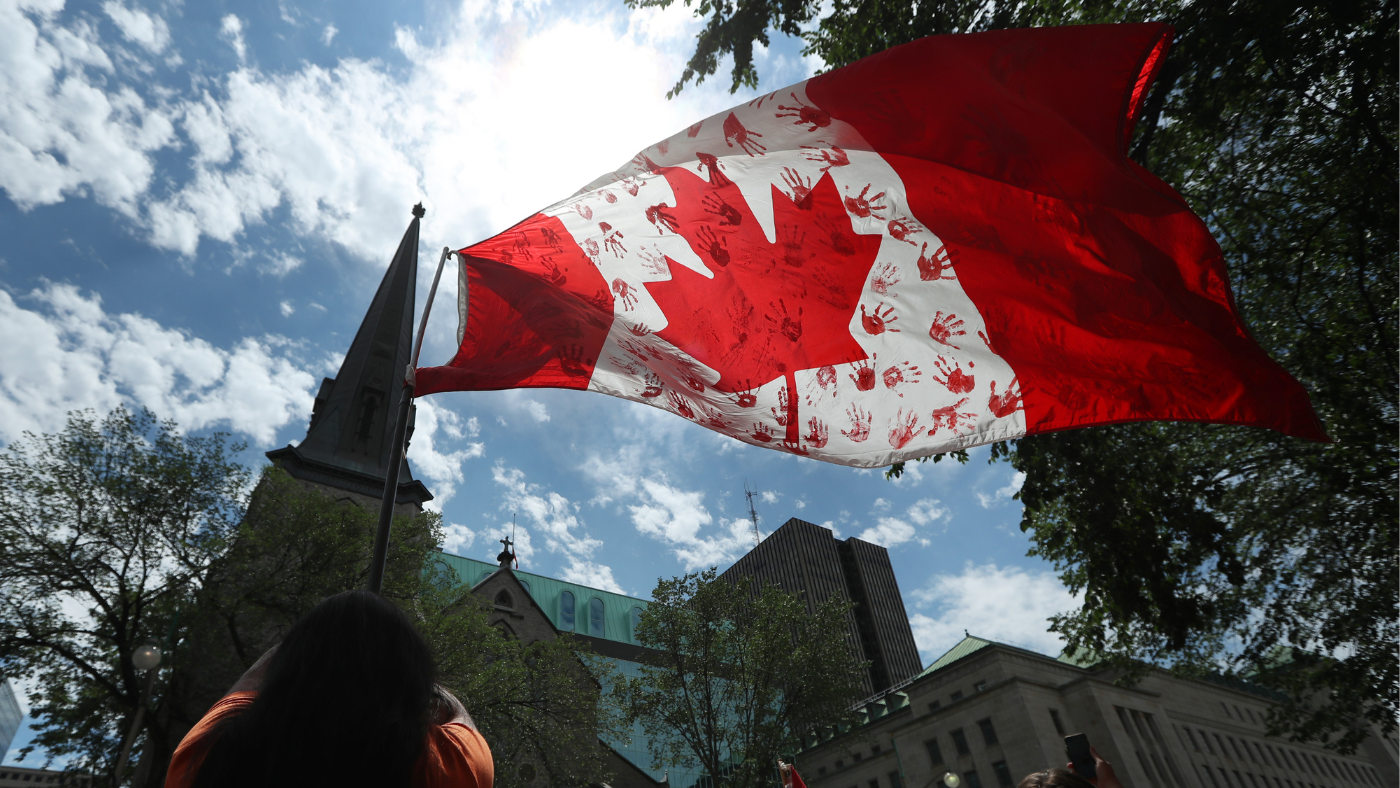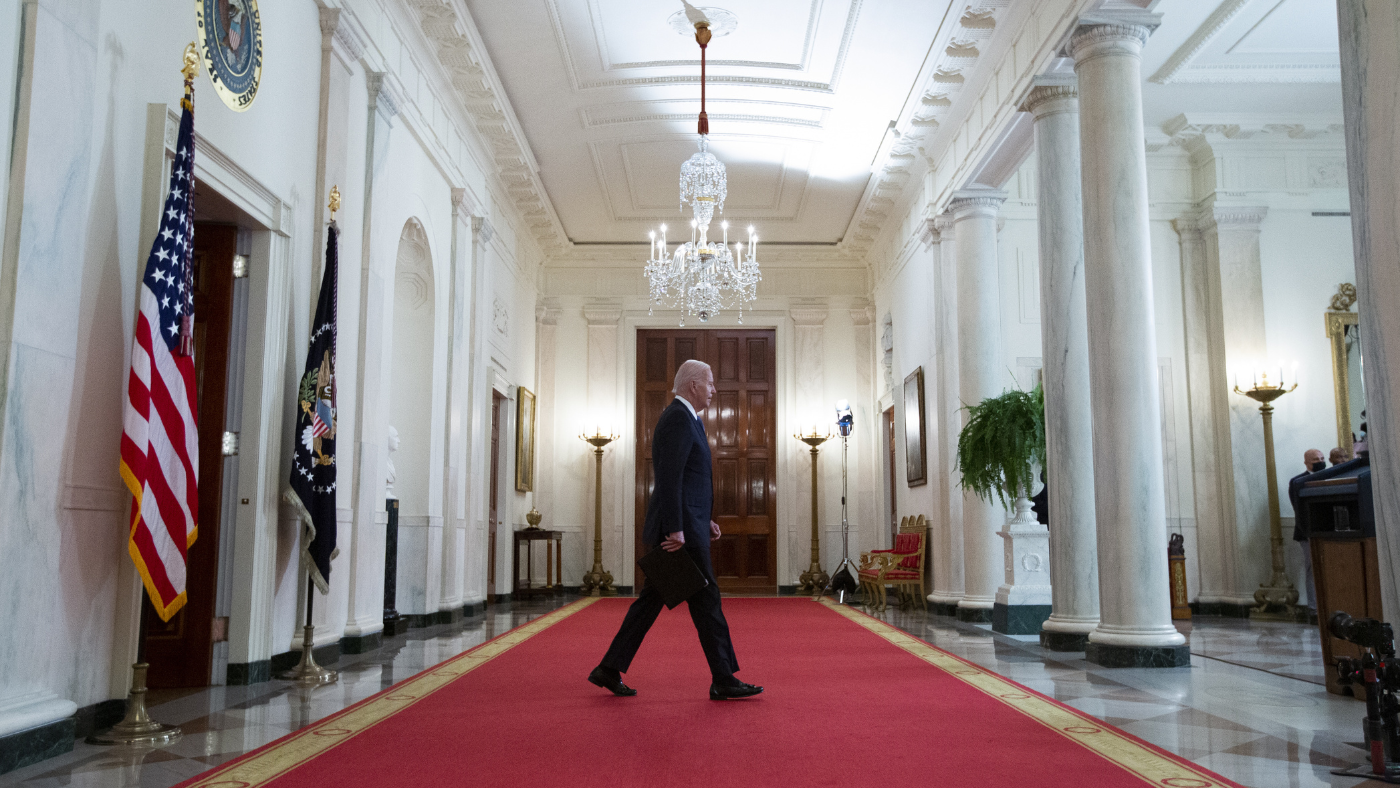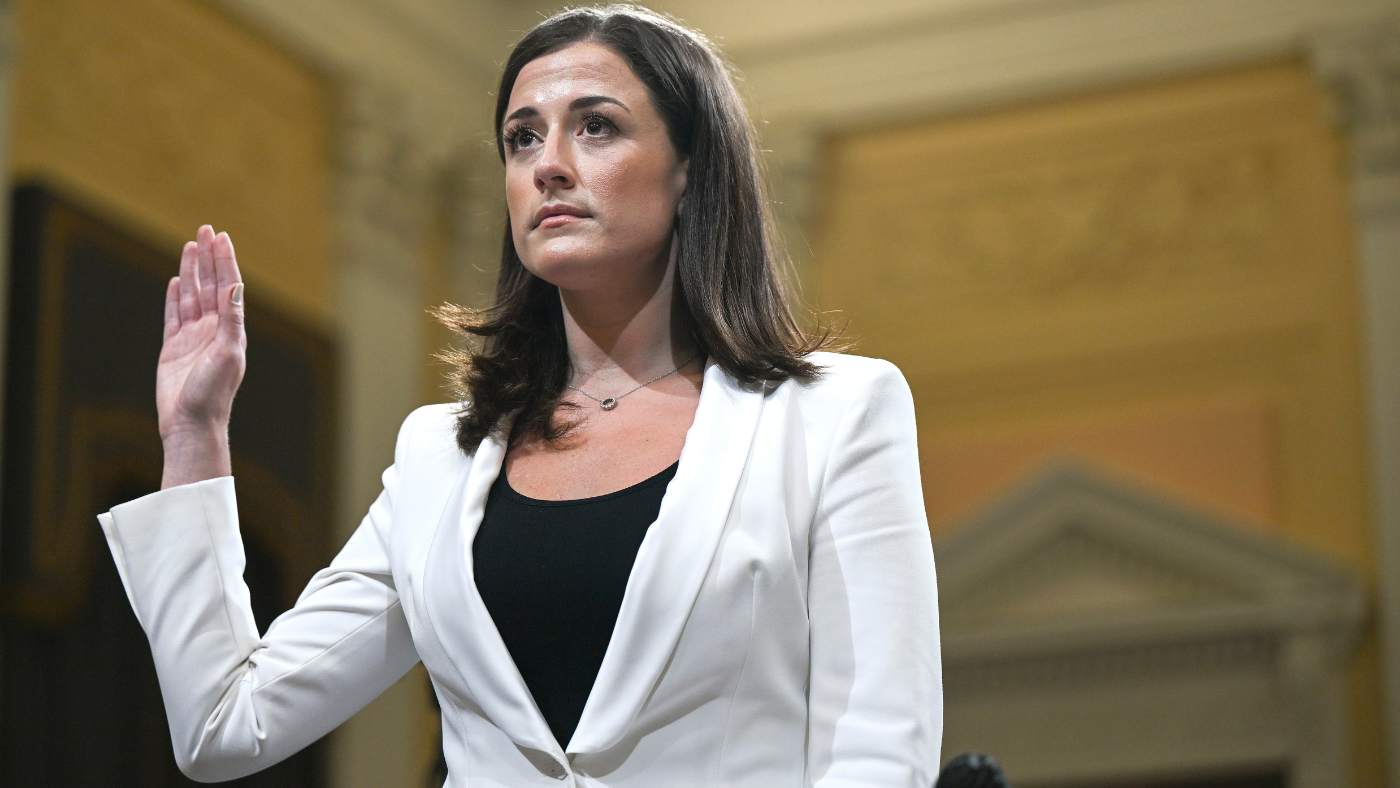‘Cop26 leaders need to replicate the cooperation seen in space’
Your digest of analysis from the British and international press

- 1. We can collaborate in space, so why not save Earth together too? It’s our children’s future at stake
- 2. Will Congress expose Big Oil like it did Big Tobacco in the ’90s?
- 3. I long for a day when gay footballers like me and Josh Cavallo don’t need to be so ‘brave’
- 4. George Osborne’s anti-work legacy has finally been banished
- 5. No hurry in London for Stormont stability
A free daily email with the biggest news stories of the day – and the best features from TheWeek.com
You are now subscribed
Your newsletter sign-up was successful
1. We can collaborate in space, so why not save Earth together too? It’s our children’s future at stake
Tim Peake in The Independent
on a bigger perspective
“Waking up on the International Space Station gives you a different view of the world – in more ways than one,” says Tim Peake. Writing for The Independent, the astronaut describes how seeing the “blue oasis of life glowing 250 miles below” makes “you appreciate not only how special our planet is, but how fragile it is too”. He is joining 57m Scouts across the world in calling for world leaders to “urgently reduce greenhouse gases”. And key to achieving that goal is “international cooperation”, he says. Peake recalls his experiences on the ISS, where “you can rub shoulders with Russians, Europeans, Japanese, Canadians, Americans and many more nationalities besides”. We were able to “overcome language barriers, working side by side to solve problems and share what we learn”, he continues. “Replicate that kind of cooperation on a worldwide scale at Cop26, and we’ll see a great result. Only this time, the participants won’t be weightless. On the contrary – they’ll need to have their feet squarely on the ground.”
The Week
Escape your echo chamber. Get the facts behind the news, plus analysis from multiple perspectives.

Sign up for The Week's Free Newsletters
From our morning news briefing to a weekly Good News Newsletter, get the best of The Week delivered directly to your inbox.
From our morning news briefing to a weekly Good News Newsletter, get the best of The Week delivered directly to your inbox.
2. Will Congress expose Big Oil like it did Big Tobacco in the ’90s?
Patti Lynn and Geoffrey Supran in the Los Angeles Times
on a powerful reckoning
Executives from major oil and gas giants are testifying to Congress today about what Patti Lynn and Geoffrey Supran call “decades of climate denial and propaganda”. The outcome will show “whether the fossil fuel industry’s lobbying-fueled stranglehold on science-based decision-making can be loosened in time to meaningfully confront the climate crisis”, say Lynn, from non-profit organisation Corporate Accountability, and Supran, from the academic Climate Social Science Network, in an op-ed for the Los Angeles Times. Nearly three decades ago, similar hearings were held with tobacco industry executives, leading to litigation by 52 US states and territories and industry restitution to the public. “The stakes this time are at least as high: trillions of dollars in predicted loss and destruction from climate change,” the duo write. “Big Oil is due its Big Tobacco moment.”
A free daily email with the biggest news stories of the day – and the best features from TheWeek.com
3. I long for a day when gay footballers like me and Josh Cavallo don’t need to be so ‘brave’
Andy Brennan in The Guardian
on paving the way
After Adelaide United player Josh Cavallo came out as gay in a social media post this week, Andy Brennan makes a case for why people need to announce their sexuality at all. Statistics and research highlight the need for visibility and representation within LGBTQ+ communities in sport, but it is “stories like Josh’s which can really resonate – stories that can ignite a motivation in people to go against the grain, and so too be brave and courageous”, says former Newcastle Jets player Brennan, who announced he was gay in May 2019. He argues that each and every person who reveals their sexuality “plays an important role in the fight for acceptance and equality within our society”. And with his announcement, Cavallo “has given hope that coming out as gay in such a masculine environment will some day cease to be a no-go”.
4. George Osborne’s anti-work legacy has finally been banished
Iain Duncan Smith for The Telegraph
on the change to universal credit
Iain Duncan Smith says that after becoming work and pensions secretary in 2010, he wanted to ensure working Universal Credit claimants had their benefits “removed gradually” to guarantee that “going out and earning money left them sufficiently better off as to make the effort and expense involved worthwhile”. Writing for The Telegraph, the Tory MP explains that he wanted a “taper rate” of 55% (meaning that for every pound a claimant earned, their benefits would be reduced by 55p), but then-chancellor George Osborne “wanted a rate of 70%”. Duncan Smith asks: “Would you do your job for the equivalent of only 30p in the pound?” So he was “delighted” to see Rishi Sunak cutting the rate to 55% in the newly unveiled Budget. Critics on the left “find it strange for a Conservative to celebrate a hike in benefits”, he writes, but “this is to misunderstand the fundamentally conservative nature of what Universal Credit achieves”. It exists to “reward grit, determination and hard work”.
5. No hurry in London for Stormont stability
Newton Emerson in The Irish Times
on tardiness
“Two interlocking threats to collapse Stormont came to a head this week and came to nothing, revealing how cynically and casually such threats are now deployed,” writes Newton Emerson in The Irish Times. The DUP had vowed to pull their ministers out of the region’s power-sharing executive if its demands on the Northern Ireland protocol were not met, while Sinn Fein made a similar threat over the delivery of the Irish language legislation. Meanwhile the UK has yet to pass laws designed to prevent an executive collapse altogether. “The obvious suspicion is the UK government finds Stormont’s fragility useful in negotiations with the European Union,” says Emerson. “‘Serious societal difficulties’ are a trigger to suspend the protocol under Article 16.” Either way, regardless of whether the British government “sees the instability of Stormont as a weapon”, passing its new laws on Northern Ireland “is taking far too long”.
-
 Health insurance: Premiums soar as ACA subsidies end
Health insurance: Premiums soar as ACA subsidies endFeature 1.4 million people have dropped coverage
-
 Anthropic: AI triggers the ‘SaaSpocalypse’
Anthropic: AI triggers the ‘SaaSpocalypse’Feature A grim reaper for software services?
-
 NIH director Bhattacharya tapped as acting CDC head
NIH director Bhattacharya tapped as acting CDC headSpeed Read Jay Bhattacharya, a critic of the CDC’s Covid-19 response, will now lead the Centers for Disease Control and Prevention
-
 Trans prisoners: a ‘conflict of rights’?
Trans prisoners: a ‘conflict of rights’?Talking Point Case of where to house trans woman convicted of rape causes uproar in Scotland
-
 ‘The UK’s malaise will not end with the Prime Minister’s exit’
‘The UK’s malaise will not end with the Prime Minister’s exit’Instant Opinion Your digest of analysis from the British and international press
-
 ‘Police tactics are not getting worse, they are simply being filmed’
‘Police tactics are not getting worse, they are simply being filmed’Instant Opinion Your digest of analysis from the British and international press
-
 ‘G7 leaders missed a golden opportunity’
‘G7 leaders missed a golden opportunity’Instant Opinion Your digest of analysis from the British and international press
-
 ‘It takes some soul searching to celebrate Canada Day’
‘It takes some soul searching to celebrate Canada Day’Instant Opinion Your digest of analysis from the British and international press
-
 ‘Breakthrough on abortion rights could be there if Biden reaches for it’
‘Breakthrough on abortion rights could be there if Biden reaches for it’Instant Opinion Your digest of analysis from the British and international press
-
 ‘If only Mark Meadows had even half Cassidy Hutchinson’s courage’
‘If only Mark Meadows had even half Cassidy Hutchinson’s courage’Instant Opinion Your digest of analysis from the British and international press
-
 ‘Boris Johnson measures success in biceps rather than brain power’
‘Boris Johnson measures success in biceps rather than brain power’Instant Opinion Your digest of analysis from the British and international press